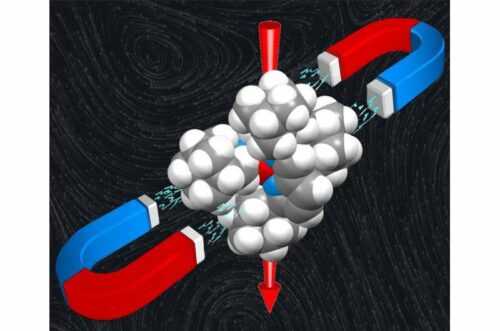Researchers from the Universities of Stuttgart, Germany, and Lisbon, Portugal, have successfully created a number of cobalt molecules that display molecular magnetism, which is promising for the development of quantum-scale computing.

Scientists are considering more effective computation techniques in light of the current demand for the sharing and manipulation of data through information technologies. In binary systems, cycling between two stable states under ambient conditions is how information is stored. The orientation of electron spins to store binary information is the basis of a new spin electronics (spintronics) concept that enables non-volatile memory, faster computation, less energy consumption, and lower integration densities.
Cobalt molecules that can alternate between two magnetic states, albeit at low temperatures, have been explored by the study team. These molecules are referred to as molecular magnets because they have magnetic bi-stability, and characterisation methods like high-field electronic paramagnetic resonance allow us to assess the materials’ capacity to respond to magnetic fields.
Nuno Bandeira, member of the research team and researcher at Faculty of Sciences of the University of Lisbon (Portugal), says that “there are currently two ‘battle fronts’ with regards to research of single molecule magnets: one of them handles research with lanthanide complexes. And indeed, one may obtain gigantic magnetization reversal barriers from them. But lanthanides are costly to produce. The other research front handles first row transition metals which are cheaper to obtain but the magnetization barriers are much smaller, which means they can only function adequately at very low temperatures. Ideally one would like to attempt to obtain a single molecule magnet that operates at room temperature.”
“These results point the way to the improvement and design of new types of ligands, for better performing molecular magnets with increasingly higher temperatures. Altogether, these results represent a milestone in the evolution of our knowledge and in the search for better materials for application in spintronics and quantum-scale computing,” adds Bandeira.





